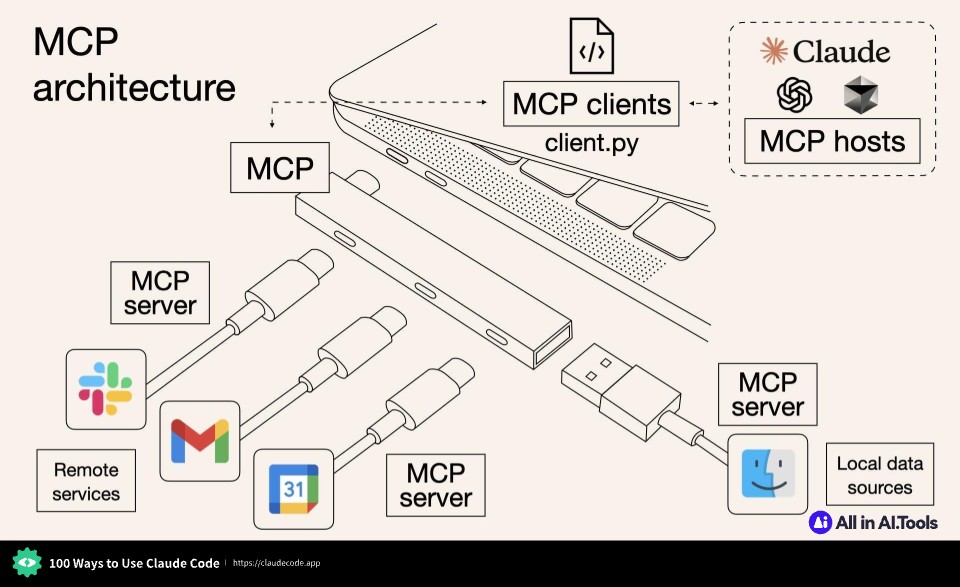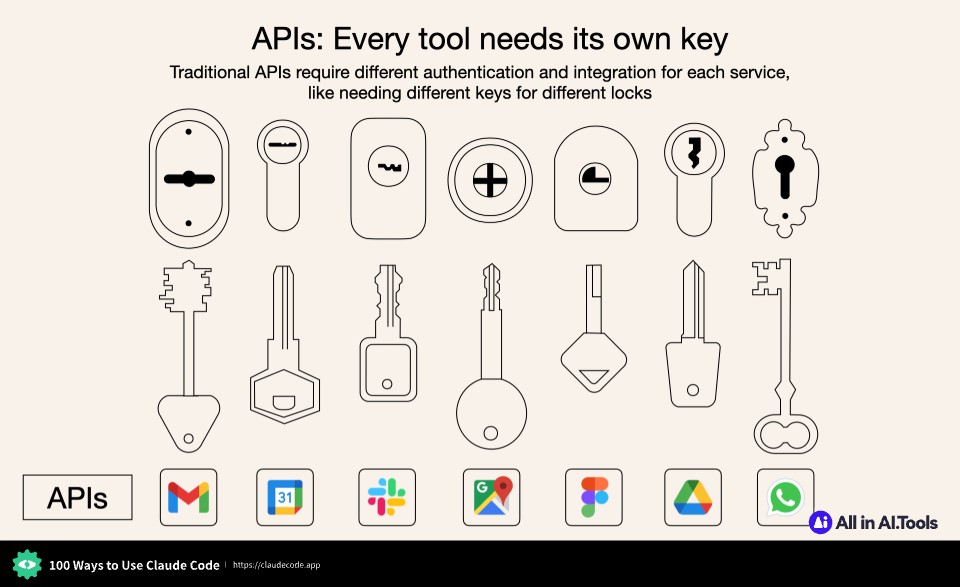Discover and integrate MCP servers to extend Claude's capabilities
🔍 A biomedical literature annotation and relationship mining server based on PubTator3, providing convenient access through the MCP interface.
PromptLab transforms basic user queries into optimized prompts for AI systems --> Built using MCP
A high-performance image compression microservice based on MCP (Modal Context Protocol)
MCP server to bridge Claude with local LLMs running in LM Studio
MCP server which allow LLM in agent mode to analyze image whenever it needs
Put an end to code hallucinations! GitMCP is a free, open-source, remote MCP server for any GitHub project
A MCP server project that creates PowerPoint presentations, forked from supercurses/powerpoint with additional features
A MCP (Model Context Protocol) server that provides automated GUI testing and control capabilities through PyAutoGUI.
An unofficial MCP interface to interact with the PapersWithCode API
Model Context Protocol (MCP) server that provides access to Azure Resource Graph queries. It allows you to retrieve information about Azure resources across your subscriptions using Resource Graph queries.
A MCP server to interact with the Solana blockchain with your own private key
An MCP server with typescript for github PR analysis
An MCP server to extend the context of agents. Useful when coding big features or vibe coding and need to store/recall progress, key moments or changes or anything worth remembering. Simply ask the agent to store memories and recall whenever you want.
A Model Context Protocol (MCP) server for integrating with Notion workspaces (made before the official one 😅)
Tools for seamless integration of different systems and services.
Cloud infrastructure and deployment management tools.
AI-powered tools for creative design workflows across 3D and 2D mediums.
AI-powered tools for product development, design review, and performance monitoring.
Tools for monitoring, analytics, and operational efficiency.


Explore Claude Cowork, Anthropic's groundbreaking AI agent built on Claude Code foundations. Discover how it enables file access, document creation, and task automation for everyone—not just developers. Learn how it integrates with MCP servers and extends Claude Code capabilities.
Explore the major [Claude code](https://claudecode.app) 2.1.1 update featuring 109 CLI improvements, automatic hot reload for skills, sub-agent execution, enhanced security, performance optimizations, and smarter prompt behavior. Learn about all the new features and improvements.
Master the art of prompting Claude with Anthropic official guide. Learn 10 proven strategies to 10x your Claude Opus and Sonnet 4.5 performance. Discover how better prompts lead to better results with practical examples and real-world applications.
Deep dive into sophisticated SSH workflows for Claude Code power users. Learn zero-friction authentication, session management, and advanced techniques that transform your vibe coding experience.
MCP (Model Context Protocol) is an open protocol that standardizes how applications provide context to LLMs. Think of MCP like a USB-C port for AI applications, providing a standardized way to connect AI models to different data sources and tools.
MCP Servers are lightweight programs that expose specific capabilities through the standardized Model Context Protocol. They act as bridges between LLMs like Claude and various data sources or services, allowing secure access to files, databases, APIs, and other resources.
MCP Servers follow a client-server architecture where a host application (like Claude Desktop) connects to multiple servers. Each server provides specific functionality through standardized endpoints and protocols, enabling Claude to access data and perform actions through the standardized protocol.
Yes, MCP Servers are designed with security in mind. They run locally with explicit configuration and permissions, require user approval for actions, and include built-in security features to prevent unauthorized access and ensure data privacy.